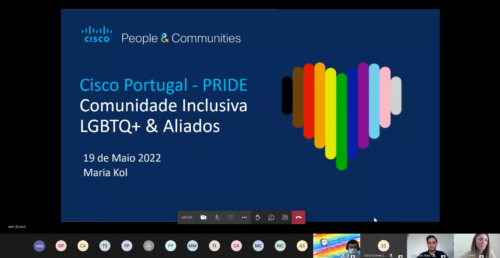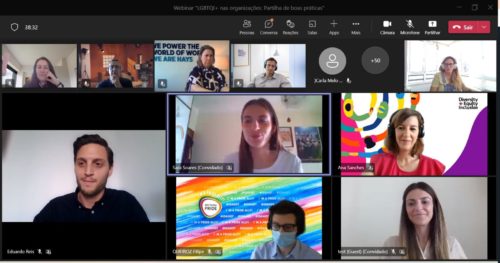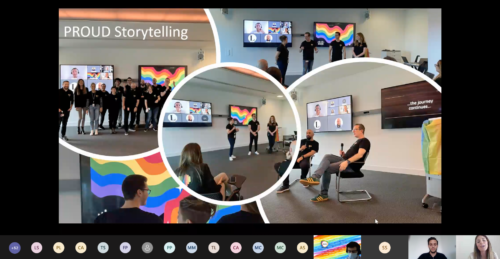
Within the celebrations of the European Month of Diversity, an initiative of the European Diversity Charter Platform, APPDI (Portuguese Association for Diversity and Inclusion) partnered with ILGA Portugal and organized a webinar on the 19th of May entitled: “LGBTQI+ in Organizations: Sharing Good Practices”
This initiative aims to raise awareness of the implementation of legislation, measures, and policies on Diversity and Inclusion in work contexts, in society, and across the European Union.
Cisco was one of the invited companies and was represented by Maria Kol, the HR director of Cisco Portugal. Maria started by talking about Cisco’s conscious culture, reinforcing that we must be aware of the environment we are part of, the importance of being committed to promoting a collaborative environment where everyone can feel safe and at the same time helping fuel Cisco’s business and drive value for its customers and partners.

Furthermore, Cisco’s best practices and how these have been implemented in the organization, the role of training and awareness of these practices with employers and the communities, what were the main results and lessons learned in the development and implementation of these best practices, and some of the myths we consider important to demystify to move forward with more inclusive changes for LGBTI people in the workplace were also presented.
One of the main focuses was the Cisco PRIDE Employee Resource Organization, which is the organization in charge of applying these best practices within Cisco Portugal. Maria shared its structure, some of the activities in place, as well as our mission of ensuring that Cisco is recognized internally and externally as an inclusive LGBTQ+ friendly company where LGBTQ+ employees can bring their whole selves to work and be part of an engaging, passionate, and socially responsible community.
Another big focus that was mentioned during this presentation was the important role of allies. Be it colleagues, family, leaders, or sponsors, an ally is someone who doesn’t belong to the LGBT+ community but still stands up for the rights of the community, fighting shoulder to shoulder for equality, reinforcing that this is a shared responsibility for a better society.
At the end of this session, there was a discussion and a roundtable allowing everyone to share their thoughts and considerations on the next steps on further developing this topic and these discussions in the future.


